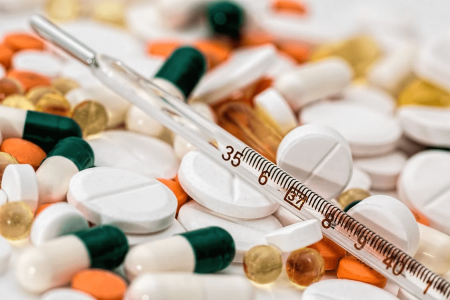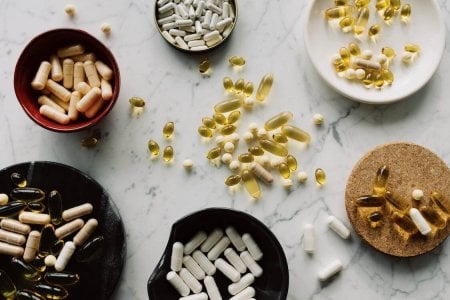Shortage of crucial medications prompts calls to prioritise children and elderly for liquid antibiotics
- Replies 28
Last November we shared news of the Therapeutic Goods Administration (TGA) warning about the shortage of an in-demand antibiotic.
Well, nearly two months on and right smack in the beginning of 2023, things aren’t showing any signs of improving.
Three hundred and sixty-one medicines have recently been reported as in short supply around the country. Of this, 45 have been classified as critical shortages.
Liquid antibiotics such as amoxicillin and cefalexin which are used to treat children are ‘particularly scarce’, with many stories of parents shuffling from one chemist to another in search of medication to give to their children.
Pharmacists, unable to dispense needed medication, have resorted to compound cures to fill crucial orders.
‘It's not like we don't still have antibiotics to treat infections… but we now have to go to second line antibiotics which can be more complicated, have an unnecessarily broad spectrum or be more expensive,’ said infectious disease expert Dr Paul Griffin.
The news comes as health experts have issued warnings over Strep A, a disease caused by bacteria that could cause severe complications in children and the elderly.

The shortage has prompted some to call for drastic measures.
Australian Medical Association Deputy National President Danielle McMullen said they were calling for liquid antibiotics to be reserved for children, seniors, and people having difficulty swallowing.
‘Most of the time, you can find an alternative, but obviously, it can be very stressful for patients,’ she added.
The TGA also allowed substitutions for oral amoxicillin and oral cefalexin in December 2022 in response to the matter, which it explained was due to manufacturing issues in a major supplier.
Other medications affected by the shortage include ones used for epilepsy and cancer.
The medicine shortage has also opened up discussions on Australia’s precarious place in the global medicine market.
‘Australia doesn't produce many medications here. We allow about 90 per cent of what we use here to come from overseas,’ said Adele Tahan, Vice President of Pharmacy Guild NSW.
‘We have to rely on worldwide supply and unfortunately the situation right now is that we're waiting for the antibiotics to become available.’
But why is Australia reduced to ‘waiting’?
‘Australia's not an attractive place for medicines to come to us. The American market is a massive market and the prices charged in America are much higher than what we can charge in Australia… It makes us the last country for medicine to come here,’ Tahan explained.
She shared that Australia accounts for a measly 2 per cent of the global pharmaceutical market. In contrast, the US accounts for roughly 41 per cent.

‘We are such a small slice of the world pharmaceutical industry pie, and we also don’t pay top dollar like the US, we’re not the first priority as far as getting stock into the country,’ added pharmacist Andrew Farmer.
‘It’s affecting patient outcomes every day,’ he said.
‘This is a big issue for us and highlights that we do need to address it and hopefully look at maybe having some local manufacturing of really important medicines like this,’ Dr Griffin added.
The current nationwide medicine shortage has serious implications for public health, and could have a long-term impact due to the lack of access to life-saving medications.
While pharmacists are doing their best to meet orders and compounding medications, the shortage has placed especially vulnerable populations, such as children, the elderly, and immunocompromised people particularly at risk.
If the recent shortage persists, it is likely to lead to a rise in preventable illnesses and medical complications due to the lack of access to necessary medications. In addition, shortages of antibiotics can lead to the emergence and spread of antibiotic-resistant bacteria, posing an even greater risk to public health.
Source: YouTube/Sky News Australia
Overall, it has become apparent that Australia needs at the very least look into local medicine manufacturing, as well as measures to mitigate the potential risks of relying on international suppliers.
This could help to prevent future medicine shortages and protect the public health of Australians.
What are your thoughts on this? We’re sure it’s all not so simple, but for the sake of discussion: should Australia produce its own medicines from scratch, or should the country continue to be reliant on overseas manufacturers?
Let us know in the comments below!
Well, nearly two months on and right smack in the beginning of 2023, things aren’t showing any signs of improving.
Three hundred and sixty-one medicines have recently been reported as in short supply around the country. Of this, 45 have been classified as critical shortages.
Liquid antibiotics such as amoxicillin and cefalexin which are used to treat children are ‘particularly scarce’, with many stories of parents shuffling from one chemist to another in search of medication to give to their children.
Pharmacists, unable to dispense needed medication, have resorted to compound cures to fill crucial orders.
‘It's not like we don't still have antibiotics to treat infections… but we now have to go to second line antibiotics which can be more complicated, have an unnecessarily broad spectrum or be more expensive,’ said infectious disease expert Dr Paul Griffin.
The news comes as health experts have issued warnings over Strep A, a disease caused by bacteria that could cause severe complications in children and the elderly.

The shortage of almost four hundred medicines is expected to continue over supply issues. Stock Image Credit: Pexels/Pixabay
The shortage has prompted some to call for drastic measures.
Australian Medical Association Deputy National President Danielle McMullen said they were calling for liquid antibiotics to be reserved for children, seniors, and people having difficulty swallowing.
‘Most of the time, you can find an alternative, but obviously, it can be very stressful for patients,’ she added.
The TGA also allowed substitutions for oral amoxicillin and oral cefalexin in December 2022 in response to the matter, which it explained was due to manufacturing issues in a major supplier.
Other medications affected by the shortage include ones used for epilepsy and cancer.
The medicine shortage has also opened up discussions on Australia’s precarious place in the global medicine market.
‘Australia doesn't produce many medications here. We allow about 90 per cent of what we use here to come from overseas,’ said Adele Tahan, Vice President of Pharmacy Guild NSW.
‘We have to rely on worldwide supply and unfortunately the situation right now is that we're waiting for the antibiotics to become available.’
But why is Australia reduced to ‘waiting’?
‘Australia's not an attractive place for medicines to come to us. The American market is a massive market and the prices charged in America are much higher than what we can charge in Australia… It makes us the last country for medicine to come here,’ Tahan explained.
She shared that Australia accounts for a measly 2 per cent of the global pharmaceutical market. In contrast, the US accounts for roughly 41 per cent.

Reports say chemists have been forced to compound drugs to fulfil the needs of customers. Stock Image Credit: Pexels/ready made
‘We are such a small slice of the world pharmaceutical industry pie, and we also don’t pay top dollar like the US, we’re not the first priority as far as getting stock into the country,’ added pharmacist Andrew Farmer.
‘It’s affecting patient outcomes every day,’ he said.
‘This is a big issue for us and highlights that we do need to address it and hopefully look at maybe having some local manufacturing of really important medicines like this,’ Dr Griffin added.
The current nationwide medicine shortage has serious implications for public health, and could have a long-term impact due to the lack of access to life-saving medications.
While pharmacists are doing their best to meet orders and compounding medications, the shortage has placed especially vulnerable populations, such as children, the elderly, and immunocompromised people particularly at risk.
If the recent shortage persists, it is likely to lead to a rise in preventable illnesses and medical complications due to the lack of access to necessary medications. In addition, shortages of antibiotics can lead to the emergence and spread of antibiotic-resistant bacteria, posing an even greater risk to public health.
Source: YouTube/Sky News Australia
Overall, it has become apparent that Australia needs at the very least look into local medicine manufacturing, as well as measures to mitigate the potential risks of relying on international suppliers.
This could help to prevent future medicine shortages and protect the public health of Australians.
What are your thoughts on this? We’re sure it’s all not so simple, but for the sake of discussion: should Australia produce its own medicines from scratch, or should the country continue to be reliant on overseas manufacturers?
Let us know in the comments below!







